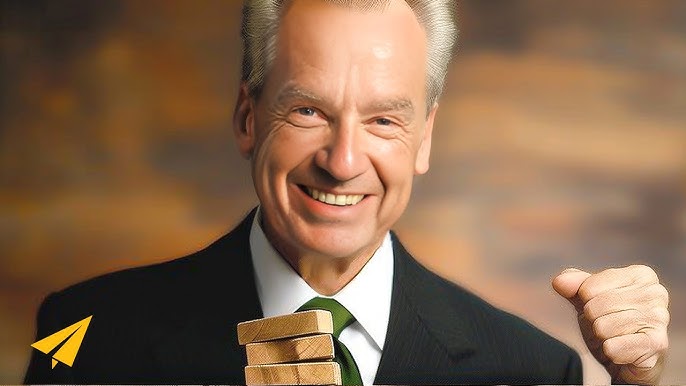“Your attitude, not your aptitude, will determine your altitude.” Zig Ziglar
November 16, 1926 – Coffee County, Alabama: After trying for several minutes to resuscitate the 10-day-old baby boy, the doctor shook his head and covered the lifeless baby with a towel. The baby’s grandmother walked over and picked up the infant. While she quietly pleaded with God and prayed for his life, the baby revived in her arms. The family knew then that Hilary Hinton Ziglar, the 10th child of Wesley and Lila Ziglar, was going to be something special. They affectionately called him Zig.
Six years later, the Ziglar family had moved to a small farm in Yazoo City, Mississippi, when Wesley died of a stroke, leaving Lila to raise a dozen children during the heart of the Great Depression. Early in life, Zig learned about the value of hard work from his mother, and he also learned never to quit, no matter the odds. He later recalled, “Mama had a 5th grade education, but she graduated magna cum laude from the university of adversity.”
Zig dreamed of becoming a Navy pilot, but in 1946, while working his way through the University of South Carolina, he gave up his dream and dropped out of school to marry Jean Abernathy. They moved to Lancaster, South Carolina, and Zig went to work selling cookware for the Wear Ever Aluminum Company.
Selling pots and pans on commission was not a job for the faint-hearted. The Ziglars were accustomed to having their power turned off, their phone disconnected, and skipping meals. At age 28, Zig was selling door-to-door and not feeling very special. He knew it wasn’t going to be found selling pots and pans.
On a Tuesday night in early 1953, 27-year-old Zig attended a seminar in Florence, South Carolina. He discovered his passion after listening to Bob Hale, a motivational speaker, talk about the power of being positive. Zig rushed home at 10 p.m. and woke his wife, Jean. “Honey, wake up. I know what I want to do with my life. It’s motivational speaking,” Zig exclaimed, “The speaker tonight actually got paid for speaking. Can you believe that? I can do that. I know I can do that. Honey, this is going to be big.” Jean yawned, “That’s nice, Zig. It’s late. Let’s go to sleep.”
Zig was on fire. He read every self-help and motivational book he could find. He won sales awards and received several promotions at the aluminum company. He eventually became a cookware sales executive with Wear Ever, but he dreamed of being a motivational speaker. Born with a propensity to talk, Zig spoke at every opportunity – Rotary, Kiwanis, schools, and churches. He gave hundreds of talks before he ever got paid for one.
At 42, Zig moved his family to Dallas, Texas, and took a job as the training director for an automotive company. The business went bankrupt two years later, so Zig started his own motivational company, the Zig Ziglar Corporation.
Zig’s brand of motivation, roll-up-your-sleeves and get-to-work, was peppered with witticisms learned from his mother. Phrases like: “ ‘The elevator to the top is out of order, you’ll have to take the stairs;’ ‘Make failure your teacher, not your undertaker;’ and ‘Failure is a detour, not a dead-end road,’” were a tough sell from an out-of-work cookware salesman.
Zig’s career breakthrough finally came eight years later, at the age of 50. Although his manuscript, See You at the Top, had been rejected 39 times, in 1975, he finally persuaded Pelican Publishing to take a chance on the book. It sold two million copies and became a New York Times bestseller. During the next three decades, the Dallas-based Zig Ziglar Corporation became a multimillion-dollar business. Presidents, prime ministers, and leaders of Fortune 500 companies sought out Zig’s motivational strategies.
Zig Ziglar logged more than five million miles in a 35-year speaking career. An estimated 250 million people around the world heard his positive message. He published more than two dozen books, most of which were best sellers that sold more than 30 million copies. In 1999, the National Speakers Association inducted Zig into the Speakers Hall of Fame, an honor earned by only a select few.
At age 80, Zig sustained a brain injury after falling down a flight of steps. Though the injury impaired his short-term memory, no one could talk him into retiring from his passion. Instead, he solicited his daughter to become his traveling companion and help with his memory loss. Zig encouraged audiences around the world until his death at age 86.

An amazing story. Thank you Pete.
great story about Zig.